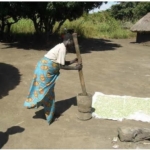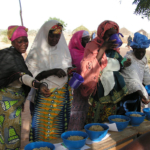


Sokoine University of Agriculture
RECODA, Tanzania Agricultural Research Institute (TARI), Sustainable Agriculture Tanzania (SAT), Nelson Mandela African Institute of Science and Tech
Tanzania
11/2018—11/2021
Tanzania has one of the highest levels of food and nutrition insecurity in the world. Recent figures show slight increases in production of cereals, but this is insufficient to meet growing demand for food. Crop yields remain low due to poor soils, climate change, pests and diseases, and limited technology access. The dominant approach to agricultural development emphasizes the use of high external inputs, such as inorganic fertilizers and pesticides and improved seeds. However, this approach has achieved limited success, particularly in the complex and fragile environments in which resource-poor farmers operate, and where few can afford the recommended inputs. Agroecological intensification (AEI) using farmer-centered research models provides an opportunity to co-create sustainable options for specific farmer contexts. Several organizations are promoting AEI approaches in Tanzania, including NGOs and universities. Sokoine University of Agriculture (SUA) is a leading center for training, research, and development in agriculture and natural resources and is home to a number of CCRP grantees and students. SUA is currently developing a PhD program in agroecology, and there is considerable interest and potential to partner with research, extension, and farmer organizations on farmer-centered AEI research.
This project establishes and operationalizes an agroecology hub in Tanzania. The vision is a network of organizations supporting research that can respond to challenges and opportunities facing smallholder farm families in complex, risk-prone environments. Hub members include universities, farmer organizations, FRNs, research institutes, non-governmental organizations (NGOs) extension services, and private sector organizations. Farmer organizations and FRNs will identify priority issues for research in collaboration with other hub members and policy and research platforms. Research questions are generated through a participatory process and form the basis for a coherent program of farmer participatory research in which students play a leading role. The hub facilitates evaluation and testing of promising practices and methodologies for agronomic, economic, social, environmental, and nutritional benefits using a systems approach. Findings from the research activities contribute to a growing body of knowledge that is documented and shared with the wider community. The knowledge will enrich curricular content in universities and training institutes. The evidence generated is used for influencing policy on supporting agroecological systems. Learning within the hub will inform understanding of research partnerships and FRNs.
Intended outputs are:
Intended outcomes are:

